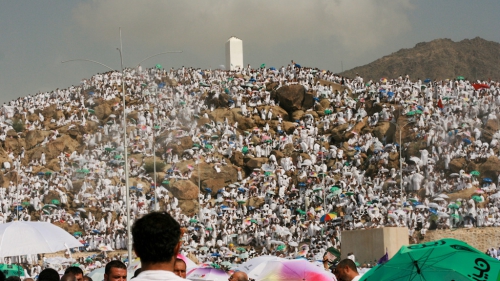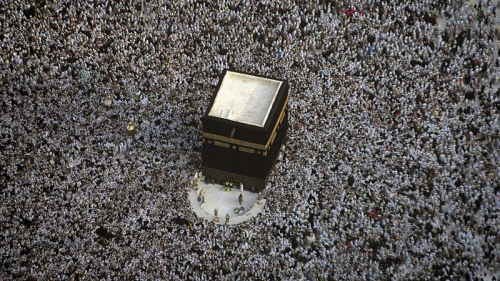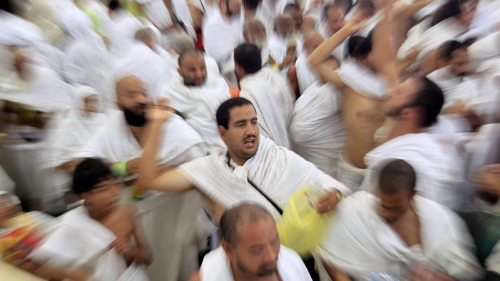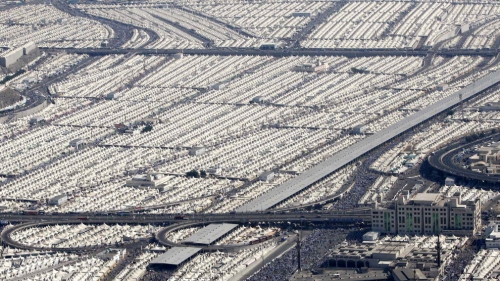The March to Washington - Now and Then

Last week America celebrated the 50th anniversary of March to Washington D.C. It was the largest demonstration ever seen in the nation's capital, and one of the first to have extensive television coverage, where nearly a quarter million marchers demanded civil and economic rights for Black Americans. On August 28, 1963 Martin Luther King Jr. delivered his famous speech, 'I have a dream' in front of the Lincoln Memorial with many in the crowd holding banners that read "March on Washington for Jobs and Freedom". There, he established his reputation as one of the greatest orators in American history.
Although African Americans had been legally freed from slavery, elevated to the status of citizens and the men given full voting rights at the end of the American Civil War, many continued to face economic and political repression. A system of legal discrimination, known as Jim Crow, was pervasive in the American South, ensuring that Black Americans remained second-class citizens. They experienced discrimination from businesses and governments, and in some places were prevented from voting through intimidation and violence. Twenty-one states prohibited interracial marriage.
Even boxer Muhammad Ali, who was to be recognized later as the greatest athlete of the 20th century, then known as Cassius Clay, who had by then won six Kentucky Golden Gloves titles, two national Golden Gloves titles, an Amateur Athletic Union National Title, and the Light Heavyweight gold medal in the 1960 Summer Olympics in Rome would be refused service at a "whites-only" restaurant. That was the nature of overt racism in the USA in the early 1960s!
The year 1963 was particularly tumultuous with racial unrest and civil rights demonstrations. Nationwide outrage was sparked by media coverage of police actions in Birmingham, Alabama, where attack dogs and fire hoses were turned against protestors, many of whom were in their early teens or younger.
 |
| Bayard Rustin with Martin Luther King Jr in1956 |
The March on Washington represented a coalition of several civil rights organizations, all of which generally had different approaches and different agendas. The stated demands of the march were the passage of meaningful civil rights legislation; the elimination of racial segregation in public schools; protection for demonstrators against police brutality; a major public-works program to provide jobs; the passage of a law prohibiting racial discrimination in public and private hiring; a $2 an hour minimum wage; and self-government for the District of Columbia, which had a black majority.
President Kennedy originally discouraged the march, for fear that it might make the legislature vote against civil rights laws in reaction to a perceived threat. Once it became clear that the march would go on, however, he supported it.
While various labor unions supported the march, the AFL-CIO remained neutral. Outright opposition came from two sides. White supremacist groups, including the Ku Klux Klan, were obviously not in favor of any event supporting racial equality. On the other hand, the march was also condemned by some civil rights activists who felt it presented an inaccurate, sanitized pageant of racial harmony.
Even John Lewis who represented the Student Nonviolent Coordinating Committee planned to give an fiery speech; it called Kennedy's civil rights bill "too little, too late," asked "which side is the federal government on?" and declared that they would march "through the Heart of Dixie, the way Sherman did" and "burn Jim Crow to the ground-nonviolently." In the end, opposed by other activists, he agreed to tone down the more inflammatory portions of his speech, but even the revised version was the most controversial of the day, stating: "The revolution is at hand, and we must free ourselves of the chains of political and economic slavery. The nonviolent revolution is saying, 'We will not wait for the courts to act, for we have been waiting hundreds of years. We will not wait for the President, nor the Justice Department, nor Congress, but we will take matters into our own hands, and create a great source of power, outside of any national structure that could and would assure us victory.' For those who have said, 'Be patient and wait!' we must say, 'Patience is a dirty and nasty word.' We cannot be patient, we do not want to be free gradually, we want our freedom, and we want it now. We cannot depend on any political party, for the Democrats and the Republicans have betrayed the basic principles of the Declaration of Independence."
His views were more in common with those of Malcolm X than of Martin Luther King Jr.
Malcolm X, arguably the greatest Afro-American leader, called the march - the "Farce on Washington." He had seen the hypocritical - ugly and hollow - side of American democracy that had been preaching democracy all around the world but denying basic human rights to the people of color. Malcolm recognized the utter futility of Gandhian non-violence tactic, parroted by Dr. King, in the face of brutal force. He did not want to see his people being pushed to the corner and famously said, "We are nonviolent with people who are nonviolent with us." "Concerning nonviolence, it is criminal to teach a man not to defend himself when he is the constant victim of brutal attacks." "If you're not ready to die for it, put the word 'freedom' out of your vocabulary." He also said, "I believe that there will ultimately be a clash between the oppressed and those that do the oppressing. I believe that there will be a clash between those who want freedom, justice and equality for everyone and those who want to continue the systems of exploitation." "When a person places the proper value on freedom, there is nothing under the sun that he will not do to acquire that freedom. Whenever you hear a man saying he wants freedom, but in the next breath he is going to tell you what he won't do to get it, or what he doesn't believe in doing in order to get it, he doesn't believe in freedom. A man who believes in freedom will do anything under the sun to acquire . . . or preserve his freedom," Malcolm said.
Malcolm X did not speak in Washington, but Martin Luther King (MLK), Jr. did. He started with prepared remarks, saying he was there to "cash a check" for "Life, Liberty and the pursuit of Happiness," while warning fellow protesters not to "allow our creative protest to degenerate into physical violence. Again and again, we must rise to the majestic heights of meeting physical force with soul force." But then he departed from his script, shifting into the "I have a dream" theme he had used on prior occasions, drawing on both "the American dream" and religious themes, speaking of an America where his children "will not be judged by the color of their skin but by the content of their character." He followed this with an exhortation to "let freedom ring" across the nation, and concluded with: "And when this happens, when we allow freedom to ring, when we let it ring from every village and every hamlet, from every state and every city, we will be able to speed up that day when all of God's children, black men and white men, Jews and Gentiles, Protestants and Catholics, will be able to join hands and sing in the words of the old Negro spiritual, "Free at last, free at last. Thank God Almighty, we are free at last."
The USA has come a long way since 1963. Not only can the Afro-Americans vote anywhere they have many law-makers and even a president - Barack Obama- whose father was a Kenyan Muslim. However, many had to die for this privilege. Malcolm X was gunned down and so was MLK - two of the most motivational black leaders of the yesteryears - in the same 1960s. Dr. King was also very respectful of the role that Malcolm X played in awakening the Blacks in the USA. In a telegram sent to Betty Shabazz after the murder of Malcolm X, Dr. King said, "I always had a deep affection for Malcolm and felt that he had a great ability to put his finger on the existence and the root of the problem. He was an eloquent spokesman for his point of view and no one can honestly doubt that Malcolm had a great concern for the problems we face as a race."
So, as America celebrates the 50th anniversary of March on Washington, it would be wrong to belittle the sacrifice and wisdom of many, while they differed on methodology and tactics. Malcolm's views on race relationship are prudent and he said, "I believe in the brotherhood of man, all men, but I don't believe in brotherhood with anybody who doesn't want brotherhood with me. I believe in treating people right, but I'm not going to waste my time trying to treat somebody right who doesn't know how to return the treatment." [Speech, Dec. 12 1964, New York City]
This year the anniversary fell on Wednesday, and the crowd was much smaller in the capital city. In his address to thousands who gathered on the National Mall to mark the 50th anniversary of the March on Washington, President Obama paid tribute to the civil rights leader and to the anonymous millions who stood by King's side during the civil rights fight of the 1960s. "Because they marched, America became more free and more fair," Obama said. "Not just for African Americans but for women and Latinos, Asians and Native Americans, for Catholics, Jews and Muslims, for gays, for Americans with disabilities. America changed for you and for me. And the entire world drew strength from that example." Obama echoed King's "I've been to the mountaintop" speech when he intoned, "The road ahead will be long, our climb will be steep." "Their victory was great. But we would dishonor those heroes as well to suggest that the work of this nation is somehow complete. The arc of the moral universe may bend towards justice, but it doesn't bend on its own."
Yes, the battle for justice and freedom is incomplete even here within the USA. There are hundreds of Guantanamo Bay prisoners who are wrongfully detained and are denied freedom. The Rohingya Muslims of Arakan state of Myanmar continue to be the worst persecuted people on earth and are denied basic human rights in the land where they have lived since time immemorial. In spite of casual lip services from the U.S. presidents, the Palestinian people still remain occupied in the other apartheid state - Israel.
When will these unfortunate people live as free people like most of us? How serious is President Obama and how serious are those lawmakers in the Capitol Hill - who say that they are spiritual children of MLK and yet do just the opposite when it comes to walking the talk. Hypocrisy, sadly, continues to be the national obsession at the highest level in this land of the free!
*****
Dr Habib Siddiqui has authored 10 books. His latest book - Devotional Stories - is now available from A.S. Noordeen, Kuala Lumpur, Malaysia.

















